The Abortion Ban in Texas
Texas has officially banned abortions for pregnancies after six weeks.
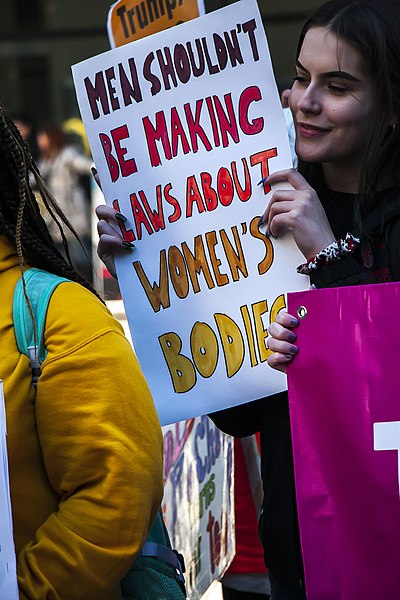
Charles Edward Miller, PDM-owner, via Wikimedia Commons
A pro-choice protest in response to a restriction on abortion access back in 2020.
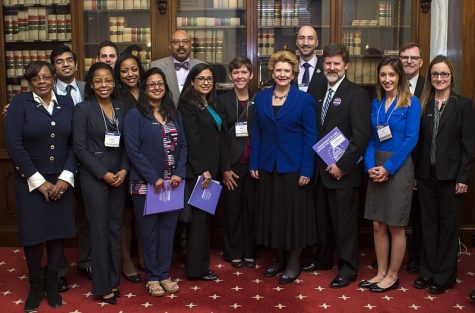
On Wednesday, September 1st, the law banning abortions past six weeks went into effect in Texas. Once cardiac activity can be detected in the embryo, normally six weeks, the right to get an abortion is banned. “The cardiac activity detected on ultrasound is not a true heartbeat. It results from electrical activity, but the valves of the heart have not yet formed. And the sound does not indicate the pregnancy is viable,” Dr. Jennifer Villavicencio, who is the lead for equity transformation at the American College of Obstetricians and Gynecologists, stated. The Texas law avoids being written as unconstitutional, because it deputizes private citizens to sue anyone who performs an abortion or ‘aids and abets’ a procedure. So, the Supreme Court decision of Roe v Wade, which is where, “a person may choose to have an abortion until a fetus becomes viable, based on the right to privacy contained in the Due Process Clause of the Fourteenth Amendment.” Where ‘viable’ means being able to live outside of the womb, which is between twenty-four and twenty-eight weeks after conception. Which is a drastic change to only the six weeks Texas allows.
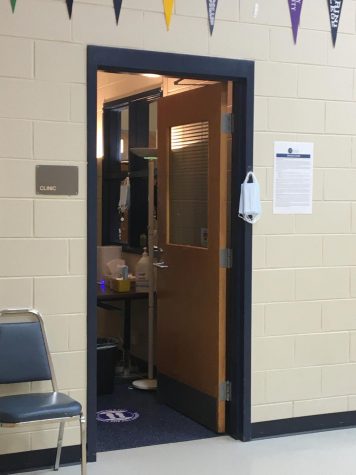
Six weeks is really not that long, and most women don’t even know they are pregnant by that time. It takes a minimum of four weeks for some to realize their period is late, not factoring in irregular periods and also people not tracking their period down to the day. There are seven million women who are of childbearing age in Texas, where many are not even of age yet. Six weeks is not only an incredibly short time to realize you are pregnant, but also having to factor in the time it takes to make the decision, gaining parental or guardian support for minors, and raising the money for an abortion. Abortions cost about five-hundred and fifty dollars, which many low-income people do not have within two weeks of figuring out they’re pregnant.
The Texas law does not even allow exceptions of the ban for rape, incest, or protecting the mother’s life. Though it does allow abortions for health reasons, they are very particular and slimly drawn. Also, “Health providers will be very conservative about interpreting the law, because they don’t want to cross a line,” stated Elizabeth Nash, who is a state policy analyst for the Guttmacher Institute, which is a research organization that supports abortion rights.
Not only does the Texas ban on abortions risk women’s lives because of the health risks they might experience, but banning them won’t stop them from happening, it will just stop safe abortions from happening, which is a big risk. Why risk lives of actual, live, people to save an un-birthed embryo? Especially when children at the age of 11 could get raped and have no idea they’re pregnant for weeks, as pregnancy wouldn’t be their first thought when being late for a period since they are so young, and still be forced to have a child that could potentially ruin their life.
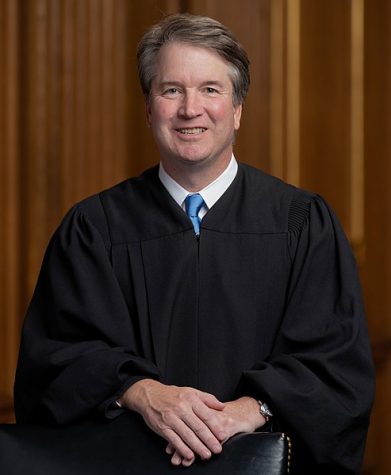
Many people think that people without a uterus shouldn’t be making laws that restrict those who do have a uterus. When asked if man should be making laws on women’s bodies, Cora Perkins, a senior at Lafayette High School, responded, “I think should absolutely not be making laws on women’s bodies, they will never have to endure what we do, so they shouldn’t be trying to enforce laws or decide for us what we can/cannot do.” Brett Kavanaugh, who’s a conservative Supreme Court Justice, had around fifty pro-choice advocates marching outside of his house, speaking out against the Supreme Court’s decision to not block Texas’ ban on abortion after six weeks. “I don’t think we should have to do anything to prevent [these laws from being made]. It’s our constitutional right to be able to have a choice on whether we have an abortion or not. But if we have to, we should protest like [the pro-choice protesters in Brett Kavanaugh] did in DC, we need to show them that they cant just take away our choice and our right to a choice,” Said Perkins.
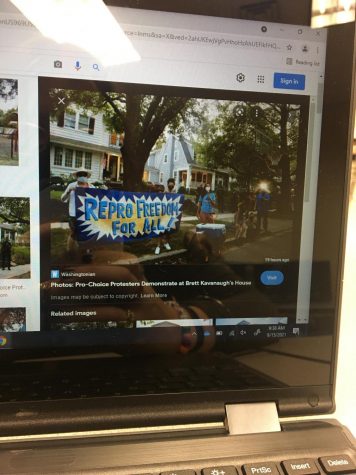
Though adoption is, and always have been, an option, it was reported in 2019, that 29,927 children in foster care in Texas. By not allowing abortions, that number will skyrocket. Getting rid of the ability to have an abortion is just leading to the increase of people in the foster care system. This is likely to do more harm than abortion ever would, as kids in foster care often never get homes. Sociological studies have also shown that women who are deciding between adoption and abortion find adoption to be more emotionally painful compared to abortion. “Adoption can be deeply traumatic. Uniformly, the birth mothers experience grief after placement. It’s a very hard choice and one that a lot of women are not interested in making,” said Gretchen Sisson, who is a sociologist at the Advancing New Standards in Reproductive Health research group of the University of California at San Francisco.
With adoption being the most hurtful for women, abortion is the main choice if they know they don’t want to have a child. Getting rid of that choice will either raise the adoption rate, or raise the rate of neglected children. Women know if they are capable of having a child, if they know they cannot take care of a child, they would be making the right choice in having an abortion. Texas banning abortions won’t stop them from happening, it will just force women to have unsafe abortions.


